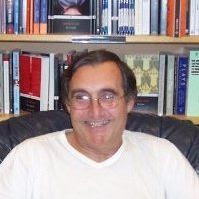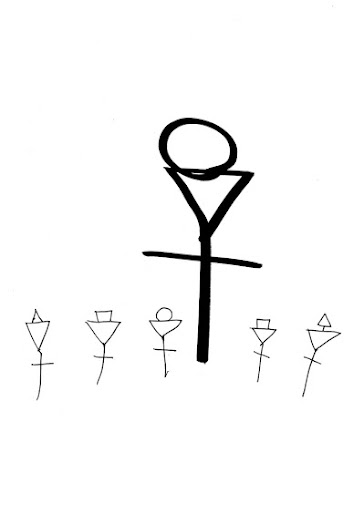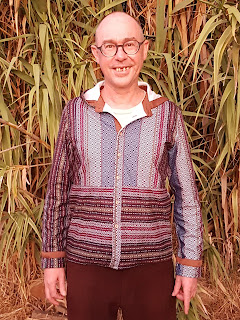"I am a proudly Appalachian writer, transplanted from the soil of Southeastern Ohio to the hilly streets of Charleston, West Virginia. I embrace the practice of mindfulness through writing and enjoy listening to the neighbor’s wind chimes. I believe in the power of writing to access and understand our shared experience in a way that can heal and empower all of us."
February
Awaken to wind chimes and crow song
to follow highway of dazed February
sunshine, cut-banks piled with shattered
ice formations like ruined chandeliers.
The stubborn COVID winter asked us all,
“How much more can you take?”
We answered with chemo and blood
tests, then small vanilla milkshakes
and filthy piles of snow in the grocery
store parking lot where sparkling streams
of meltwater run the gutter
and disappear into storm drains.
How can anguish and nothingness
and hope live together in the small
space of the heart?
It was a thing that had to be done…
it was the thing that could be done.
Eavesdropper
I.
by day I do my work as interpreter (interprete)
remotely, at home, by telephone (teléfono).
I parrot the words of otros, feeling them
flow through me like electricidad through
conduit (conducto). For the minutes or hours
the calls last I am merged in séance with
disembodied voces, we live our lives
together, though their problemas are
not mine, I’m only paid by the minuto.
II.
press 2 for Spanish (oprima dos para español):
911 calls, parent teacher conferences, workers comp,
ancient medicare enrollees, WIC, car insurance,
home foreclosures, tech support, but most of all,
the immigrants waiting in detention centers…
III.
Do you have any heart problems?
No, I have two bullets in my head
from an attempt on my life.
They were unable to remove them
in the other center where I was.
That doesn’t have anything to do with your heart.
Do you have heart problems or high blood pressure?
No heart problems, just these two bullets in my head.
IV.
There were a lot of cockroaches in the cell where I was.
At first I would kill them, but after awhile I started to talk to them.
I told them that they could crawl on my body, as long as they didn’t
go in my mouth or ears… I needed the company.
V.
At home everyone in the family has their own bed, even my wife, because I like my space.
I have a big bed, and when I’m asleep the kids will sneak in and get in bed with me.
Now I’m in here on this narrow uncomfortable bunk and all I can think about is
how I wish I could have my kids in bed with me. I miss them so bad it hurts.
VI.
Sometimes, I’m just sitting there, and I feel like I have powers…superpowers,
like one of those Power Rangers, like I can just point my hand at the wall
and make a hole in it. But then I reach out my cane and touch the wall
and there’s no hole there. I don’t tell anybody about this because I know
they would just tell me I’m crazy.
VII.
The workday ends with a dial tone, no more voices in my head.
Bullets, cockroaches, lonely bunks, and superpowers evaporate,
and I head out to the YMCA to exercise and exorcise my pain
and the pain of others, still not knowing what number to press
for freedom, safety, healing, or a second chance.











